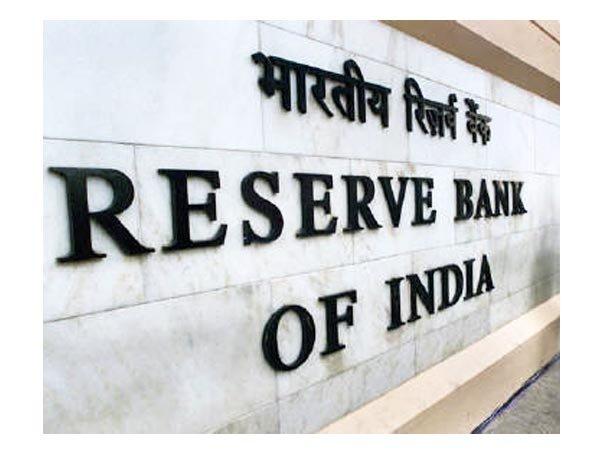With a single stroke of a pen, the Reserve Bank of India (RBI) has done what the CA Institute couldn’t accomplish all these years – hold the hands of small- and mid-sized audit firms – and give them a chance to grow big in the highly competitive audit market for the financial sector.
The central bank has, through its new audit guidelines for banks, NBFCs and Urban Cooperative Banks (UCBs), redistributed the financial services audit market, especially for NBFCs, providing small- and mid-sized local audit firms an opportunity to play and grow big at the expense of the Big Four audit firms.
After all, in the post-1991 liberalisation era, most Indian firms have seen their hold on the audit market disappear and move into the hands of the Big Four network, who, with their deep pockets and large talent pool, managed to get a dominant share of the market over the last two-and-a-half decades by gobbling up several top-notch Indian audit firms.
Of course, in a market-oriented economy that India aspires to be, one shouldn’t complain about losing business or market share.
Now, the Big Four (Deloitte, KPMG, PwC and EY), through their local affiliate firms, are going to find it tough to retain their mandates, with the RBI clearly helping the desi audit boys get ‘Aatmanirbhar’ by tweaking the audit rules in the latter’s favour.
The RBI has brought changes to two critical areas – joint audits and ceiling on audits – both of which are to the disadvantage of big four and, therefore, stoutly opposed by them, according to sources in the audit fraternity.
Joint audits are now mandatory for RBI-regulated entities with assets size of over ₹15,000 crore. What is even more helpful for the local firms is the new rule that caps the number of audit mandates for an audit firm to four commercial banks, eight NBFCs and eight UCBs in a year. Moreover, this ceiling will apply irrespective of the asset size – a point clarified by the RBI through its recent Frequently Asked Questions (FAQs) in its April 27 circular.
Auditor independence
“Small and medium practising firms will now have more scope of getting these bank and NBFC audits. If banks and NBFCs fall under the latest RBI guidelines, then Indian audit firms will definitely be benefitted,” said Nihar Jambusaria, President, ICAI .
Jambusaria felt that the clear objective of the RBI bringing the April 27 circular is to ensure the independence of auditors in the financial sector, even while admitting that the new rules are quite aligned to the ‘Aatmanirbharta’ objective.
Atul Gupta, former CA Institute President, said that the RBI’s April 27 circular has echoed the role of independence in the appointment of auditor in Public Interest Entities (PIE). “One side it will strengthen domestic CA firms who can play critical role in the journey of Aatmanirbhar, on the other, it will encourage domestic firms to do capacity-building for taking larger audit mandates and equip them to evolve into firms of global standing,” he said.
Srinath Sridharan, corporate advisor and independent markets commentator, said that the RBI’s effort in building domestic capacity across Indian audit firms is the correct approach from a long-term perspective. To make it an uniform approach, it will be useful to have this topic as an agenda in Financial Stability and Development Council (FSDC) discussions, so that the Finance Ministry, the Ministry of Corporate Affairs and all regulators, can be aligned on this for implementing in their own sphere of control and coverage, he added.
Joint audits
While the latest RBI guidelines introducing the concept of Joint Audits in NBFCs and banks with asset size of over ₹15,000 crore may not be to the liking of the Big Four, many in the audit profession feel there is no harm in innovating or experimenting with it.
Amarjit Chopra, former CA Institute President, said : “Though there is no empirical evidence of joint audits improving quality, we must keep on innovating and see if we can get better results. What is the harm? Even when audit rotation came, there was lot of opposition. Nobody is opposing rotation today. After a few years, there won’t be any opposition for joint audits, too. Joint audits have been there for ages in public sector units and public sector banks, and have been pretty successful. People say what is the guarantee that four eyes are better than two eyes, I say what is the evidence that two eyes have done better?”
Chopra also felt it would not be right to bring global experience on the aspect of joint audits to oppose its introduction. “Where is the global experience? Why India should only be follower and not be a leader? The RBI has tried to be a leader in this matter and kudos to it on this,” he said.
Chopra felt the new RBI audit guidelines will benefit small and medium audit firms, as they will now get a platform, both in terms of experience and revenues.
Supporters of the RBI’s new audit guidelines feel that there is no harm in these rules trying to benefit or give a better deal to small and medium local audit firms. “What is wrong in these rules having an Aatmanirbharta flavour? So far the dice was heavily loaded against the local small and medium firms. Why should the Big Four cry foul now. In fact, so far it has been our grudge that whatever tenders (which stipulated high networth criteria) have been coming had been skewed in favour of Big Four,” said Chopra.
The RBI guidelines may give some chance to local firms, but clients are not going to give them mandate if they don’t have minimum size. “Clients will only give it to people who will be able to handle it,” he noted.
The bottomline
Whichever way the fortunes of domestic small- and mid-sized audit firms may turn, one thing is clear. The RBI audit guidelines have given the much-needed extra push for small and medium audit firms to take wings in the Indian audit market for financial sector. Also, the several scams and sudden collapses in the corporate sector in recent years, including IL&FS (attested by some of the Big Four affiliates) and DHFL, have indeed widened the trust deficit between the RBI and audit profession. This is clearly reflected in the recent stringent RBI rules, which has come as a guided missile on the large firms, especially the Big Four.
The bottomline is that it may take some more time for Indian firms to grow big to global stature. This effectively would mean that Prime Minister Narendra Modi’s call to the Indian CA fraternity to have at least four Indian firms in the top eight of the world by 2022 will not be a reality, at least for the next couple of years.










